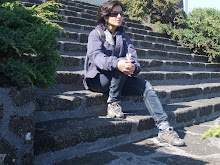Indian journalism hit a new low when covering the Aarushi murder case earlier this year. Journalists appeared to have lost all sense of decency; hounding a grieving family, based on the sketchy, sordid details provided by the police.
I don’t want to dwell on the distasteful coverage again. I have written about it here before.
But the questions that remain are: What lessons has the Indian media learnt from the episode? Has it evolved a standard for the future? Will it self-regulate or will wait for a national outcry again, before learning to behave?
I’m sure there are internal codes of conduct for every organization but this needs to happen at an industry-wide level. In neighbouring Pakistan, the media has understood its influence as a player in politics and in fact even its power to make and break governments. And while the country is not exactly the beacon of democracy, Pakistani journalism is taking a few very democratic steps, worthy of emulation.
Speaking at the Woodrow Wilson Center in Washington D.C., Zaffar Abbas, the resident editor of ‘Dawn’ in Islamabad said last month, “We handled the previous government; a new government has come in but it’s now time to have a self-assessment of our own performance.”
According to Abbas, “The role of the vernacular newspapers has become very important with 3 to 5 million newspaper readers and 50 to 60 million viewers of 24/7 news channels. It has suddenly changed Pakistan – changed Pakistan to an extent and with a speed that now people have started to say – what are these TV channels telling us? Is that the real politics in this country? Should there be some kind of control over the way issues are being raised? People are raising questions about anchors and reporters - have they become real players in making and breaking governments? Should that be allowed?”
To temper this new found power and influence the Pakistan Federal Union of Journalists has evolved its own code of conduct, part of which involves the setting up of a Media Complaints Commission.
Abbas explains, “We need to have a commission largely because some newspapers and TV channels in this country have started on the notion that since we are independent we can broadcast anything that we think is right. The difference between what is right and what we think is right is huge! And that is why the whole debate has come in. Do TV channels have the right to intrude upon anyone’s privacy? Can they cross the line of objectivity? What should be reported and what should not be reported?”
“So the whole concept is to go for self-regulation and to allow the members of the public to approach the complaints commission with their own views and their own complaints.”
A panel of retired judges and professors will look into the complaints and decide whether a particular newspaper or TV channel has violated the self-made code of conduct.
It sounds like a fairer, more democratic way of doing things although it is still in its nascent stage and has not yet been tested. And of course, being open will bring with it attendant problems. For starters, it will probably require tremendous effort and paper work to keep such an operation going.
It is however still worth trying in India because in a democracy why should power be concentrated so heavily with the media? Why should the media go unchallenged if it destroys reputations and careers without evidence? Why shouldn’t people be able to contest the way they are represented? If a free press is a crucial pillar of democracy, shouldn’t the media also be more democratic?
In the spirit of fairness, that most basic of journalistic tenets, this is worth trying.
Friday, October 24, 2008
Subscribe to:
Post Comments (Atom)

6 comments:
""Why should the media go unchallenged if it destroys reputations and careers without evidence? Why shouldn’t people be able to contest the way they are represented?""
Yes indeed. The media has become the self-appointed judge, untrammelled and unreined.
Hi Raji,
I guess you should know... having been in the business as well.
Modern-day Indian media feels mighty about itself .. somehow they think they represent the "voice of the nation", it is quite annoying when certain news anchors retort "The nation wants to know .. blah blah .." to some helpless "guest". Questioning and Judging becomes so easy for us .. how about finding answers for a change !!
Ezhil, It is important to remember that what we see on TV or read in the newspaper or blogs is not really the full story but just a slice of reality. So I agree when anchors say "nation...." they really just mean a few in the middle and upper middle class. The upwardly mobile nation.
Back to your blog after quite a hiatus! Hope to catch up soon on the posts I've missed. Yes, the press too must of course have some self regulatory mechanism. Definitely worth a trial. After all, media can't violate the very rights that it talks about!
Sathej
Hi Sathej,
Long time no hear. Welcome back!
Post a Comment